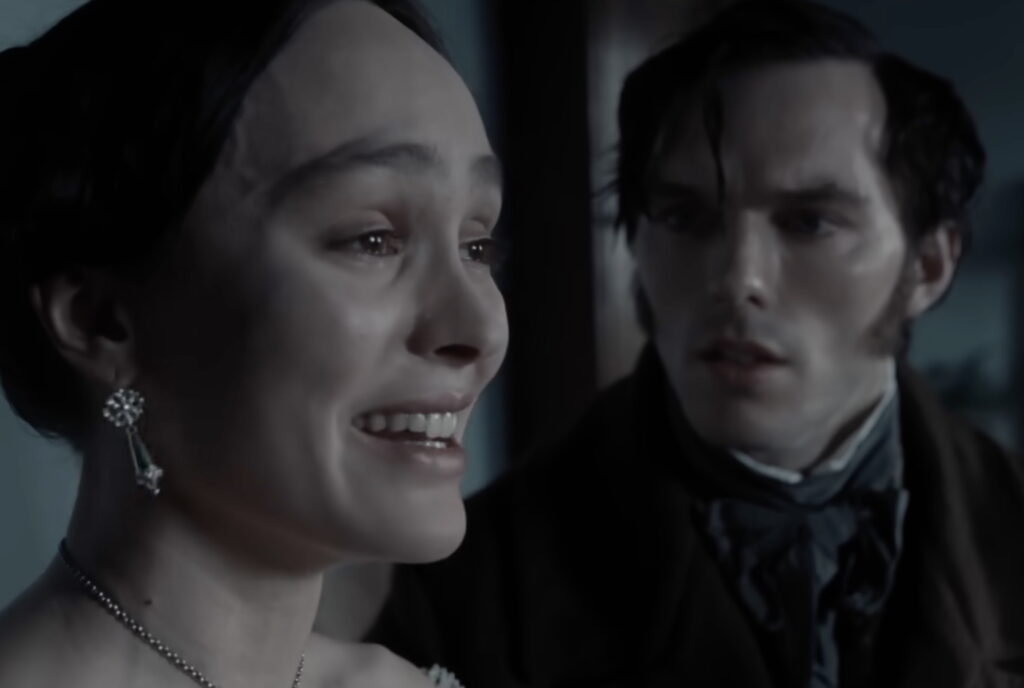[ad_1]
Maybe the most important thing is commitment. If you’re going to ask people to come to a movie theater and spend their money and, more important, their time, on something you dreamed up and wrote down and had other people act up, you owe it to them to be committed. You don’t owe necessarily them owe a happy ending, or that their preferred ship will sail off into the sunset together. You don’t owe them the story they want to hear—if they want to hear it so bad, they can tell that one themself, no? But you do owe them your commitment to the story you’ve chosen to tell. You need to say it with your chest. And this is why I fucking love Robert Eggers.
First let me say that Nosferatu is a good, scary horror movie (I saw this sucker on Christmas morning in a very full theater, and there was a lot of shrieking), and that, yes, Robert Eggers has given us a vampire who is both an ancient Transylvanian nobleman and a monster. But the movie’s horror works because every moment of this dark, claustrophobic world, and its people, feel real.
His new retelling of Nosferatu isn’t exactly a new retelling of Nosferatu—it’s set in 1838, and it feels like it. His people look and think and act like they would have in early 19th Century Germany—there isn’t some convenient audience insert character who somehow has the same opinions as a 2024 Bushwick barista. The men have a sphere and the women have a sphere, and those spheres are not to be breached. When Ellen (Lily-Rose Depp) wants to convince people that her “fits” are actually visions and premonitions, her only arsenal is either sobbing piteously in the hope that the men will feel protective (or that at least they’ll try to shut her up by doing what she wants), or to seduce. Even when her husband Thomas (Nicolas Hoult) has been missing for weeks, her suggestion that she go to his office to enquire about him is outrageous to her friend and de facto guardian, shipping magnate Friedrich Harding (Aaron Taylor-Johnson), who snaps that she can’t go out unaccompanied—presumably by a man. Even Friedrich’s wife, Anna, Ellen’s best friend who loves her, is frustrated that her emotional outbursts are ruining Christmas.
There is no moment, as in, Francis Ford Coppola’s Bram Stoker’s Dracula, of two teenage Victorian girls giggling over the Kama Sutra together. There is no winking, no moment when modernism swoops in to save these people—whether from the ancient blood-soaked superstitions of the Carpathian Mountains, or from the civilized German society where women are barely considered human.
The first five minutes of this film are perfect. You’re with Ellen as she calls out for connection—celestial, demonic, spiritual—she just wants someone to respond to her. Alone in the dark, she wants to know that she is heard by the larger universe.
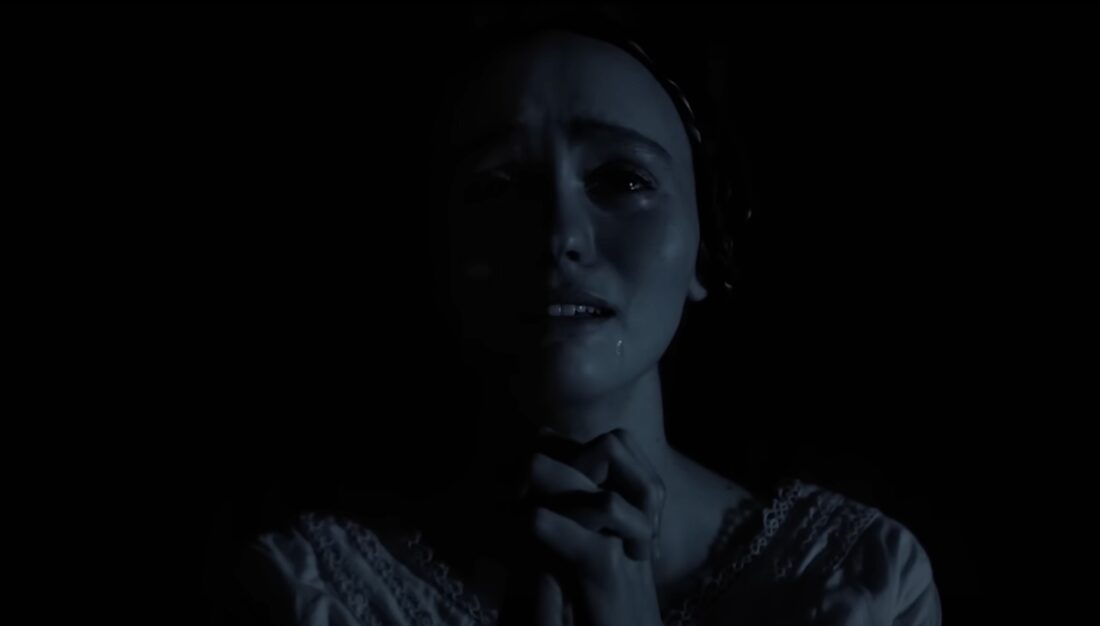
And given what movie this is, I’m assuming you can guess who answers her prayer.
These scenes are gorgeous black and white, uncanny, innately frightening. And then the movie thumps us back into the prosaic life of 1838 Wisborg, Germany, where Ellen is the new bride of Thomas Hutter (Nicolas Hoult), who is angling for an important assignment by his boss Herr Knock (Simon McBurney) even though it might meant he’s sent abroad for work—this is their chance to vault up the class ladder so they can start a family of their own. The young couple are staying with their rich friends Friedrich and Anna in their sumptuous house to have a break from their own poor apartment.
Thomas is sent off to the Carpathian Mountains to broker a lease for a certain ancient Count Orlock (Bill Skarsgård). Along the way he runs afoul of local custom, and Orlock himself, who insists on being addressed as “My Lord” rather than “sir”, who won’t give Ellen’s locket back, and who is looking forward to a retirement in the civilized city of Wiesbaden, far away from all those local customs. Ellen’s “melancholy” returns with a vengeance, and worsens the longer her husband is gone, until finally Friedrich resorts to calling in a doctor, Sievers (Ralph Ineson), who soon resorts to calling in his brilliant-but-disgraced teacher, Professor Von Franz (Willem Dafoe), when the bloodletting and ether don’t seem to help.
I mentioned commitment already, but I do want to take a paragraph to say that this movie is fucking heartfelt, and it made me incredibly happy. Robert Eggers found a really interesting way into the classic Nosferatu, and gives the story a new life without making it feel like a “reinvention.” The sets, costumes, cinematography, score—THE SCORE!—every performance, it all falls together like a perfectly tailored cloak. The Romani who surround Thomas with mockery and jeers, the sailors who unknowingly bring Orlok to Wisborg, the nuns who work in Sievers’ hospital, Anna’s cherubic daughters—not a single actor punctures the period bubble Eggers and his team have created. Willem Dafoe is hilarious, yes, but his Professor is also so deeply human and empathetic, caught up in a tragedy that only he can see coming. Aaron Taylor-Johnson and Emma Corrin are both pitch perfect as the well-meaning rich squares—it would be so easy for Friedrich especially to become a secondary villain, but that’s only because we, the audience, know Ellen’s right about everything. From Friedrich’s vantage point, he is a kind and generous man saddled with his wife’s unhinged friend, and as the movie goes on, and he’s required to fall into terrible depths, Taylor-Johnson gradually made Friedrich my favorite character. Nicolas Hoult has to be the heart of the film as Thomas Hutter, the decent loving man, facing off against an all-consuming monster, forcing himself to be a hero despite an indescribable terror. And it works. Lily-Rose Depp has to embody both the pure young wife and the insatiable mystic. She has to have seizures, trances, visions, sleepwalking episodes–but also to ground all of that in an emotional core that we can connect with–and it’s a shockingly good performance. And then obviously Bill Skarsgård—but he Skarsgårded even harder than I expected. An enormous amount of his role relies on him lurking in shadow as he overpowers the characters, and the audience, with his voice. But when he speaks he’s the only thing that exists.
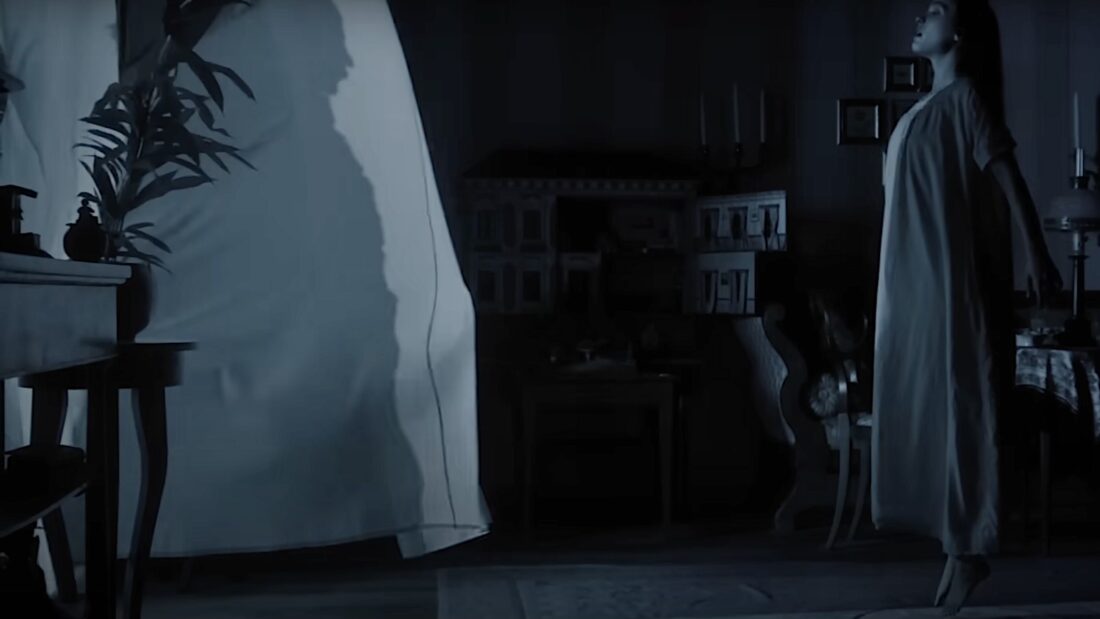
As you can see, it’s an elegant math problem of a movie: women’s desires are wild and ungovernable, and their chronic ailments are seen in relation to the men in their lives. The treatments for those ailments are governed by men, who, consciously or not, do what they must to make them weak, pliable, and, well, governable. Class stratification is rigid and woven into the fabric of the plot. The city is “civilized” and the country is “backwards”. A mysterious and off-putting foreigner wants to fell to civilization, but will of course bring the backwardness with him. These variables are worked out in an elegant work of mythology and allegory.
But Nosferatu (like any good math problem) is much more than the sum of its variables. Part of me really wants to type words like LUSH GOTHIC DARKNESS and VELVETY BLACKS and FLICKERING TORCHLIGHT and CHEEKBONES a thousand times and hit publish—and to be fair, that would also sum the film up well. Robert Eggers creates a mood from the first title card, and that mood doesn’t lift until the credits are over, and I loved every second of it. The film is simply beautiful from the first shot to the last.
Without spoiling too much, I’ll say that the entire sequence of Thomas attempting to find, and then escape from, Count Orlok is riveting. If you’re looking for a horror movie, this is where you’ll find it—Thomas find himself in a nightmare, lost to time and logic, and The scenes of Ellen’s visions and encounters with Orlok are all-consuming, and in the waking light, when Anna tries to explain them away, all of the explanations feel thin and laughable, as they would to Ellen, because the visions are so powerful.
The medical treatment options are: ether; tied to a bed; strapped into a chair; bleeding. Even the disgraced Swiss professor, who sees Ellen for the intelligent spiritual seeker that she is, and who disapproves of the ether and the bondage, is A-OK with all the bloodletting.
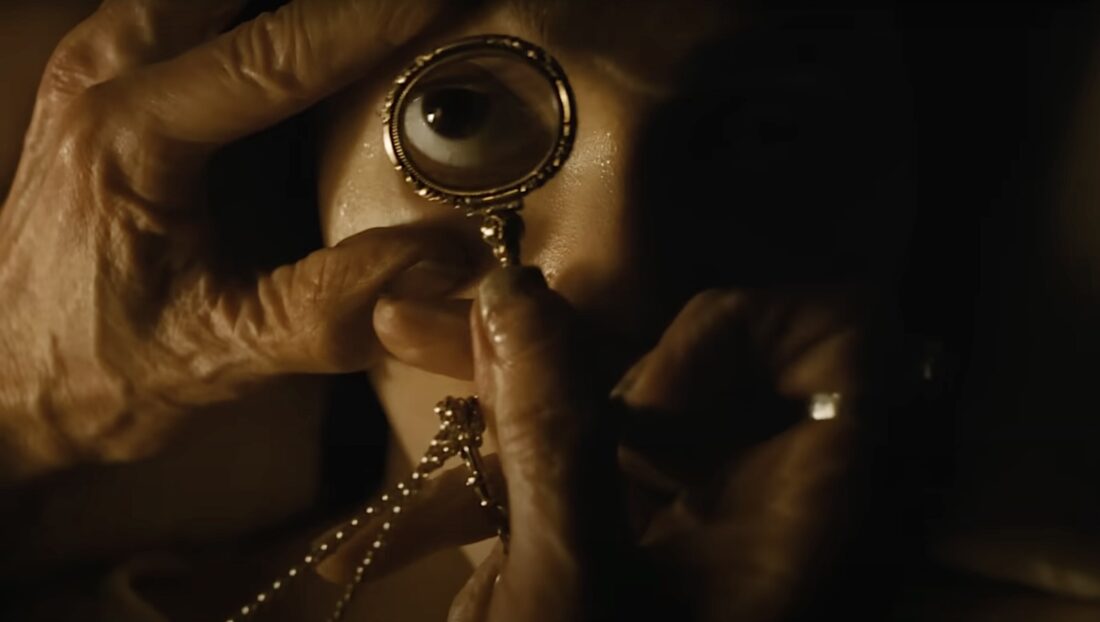
As I said, the evocation of the period is immaculate, the details perfect. Count Orlok speaks Ancient Dacian, the language of medieval Romania. Ellen wears the same dress twice that I noticed, because again, she’s poor, and this is 1833, and women didn’t just have closets full of dresses to choose from. Professor Von Franz lives with an undefined number of cats who have free run of his apartments—which in addition to underlining his character’s weirdness in this society, is also a fun nod to his role in Grand Budapest Hotel. And of course Willem Dafoe playing the quasi-Van Helsing is fun anyway, given that he played Max-Schreck-playing-Orlok in Shadow of the Vampire.
And of course we have to talk about the thematic stuff at least a little bit. On the one hand, Dracula and Nosferatu have always about STDs, PTSD, queerness, fear of immigrants, and hatred of Jews. A mysterious foreigner comes to town and brings a plague and hordes of rats, the pure women of the town are violated, unregulated desire destroys good Christian families, etc. etc.
But Robert Eggers’ version becomes much more about women’s autonomy, I think.
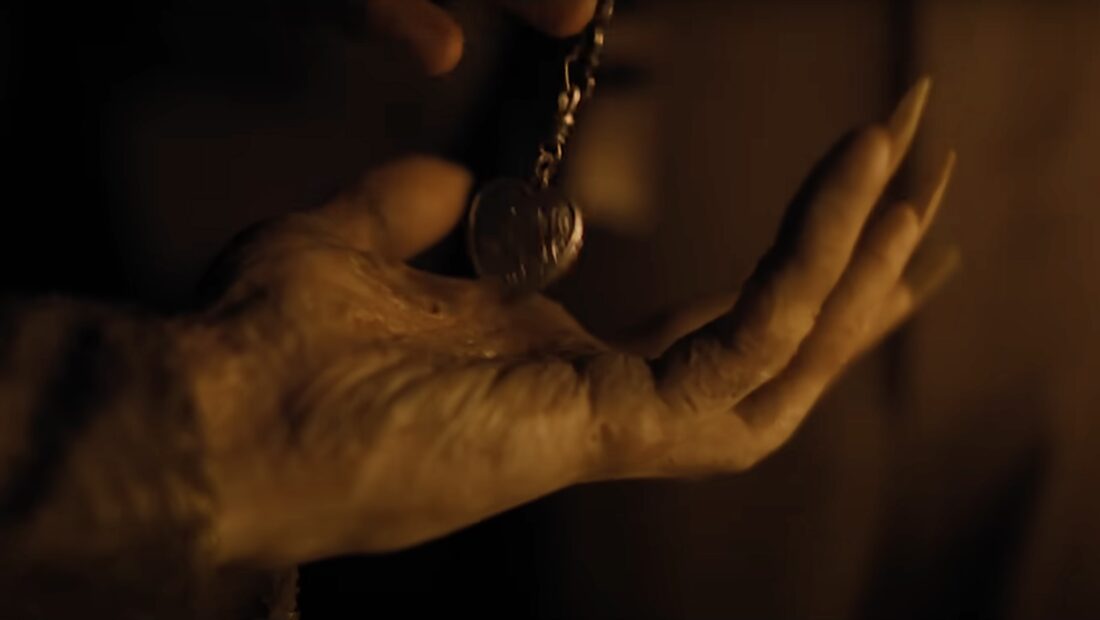
We meet Ellen before we meet anyone. Hers is the first face we see, the first voice we hear. And by making her the protagonist from the start, Eggers has turned what is usually a story about a vampire’s obsession with a particular woman, or with world domination, into a story about a woman seeking spiritual enlightenment. (Which of course makes the vampire even more of a supernatural mystery, since he’s the one who responds to her. What else is out there?) Ellen is a woman who tells the truth and is ignored. She points out very clear and present danger, but she’s branded as hysterical. She is physically overpowered and tethered to a bed, wrapped in a corset, drained of blood, smothered with ether. She is ignored, shushed, yelled at, drugged, told to mind her place, banned from going outside without male accompaniment, and, as I mentioned, accused of ruining Christmas.
But the problem for me (and this is the closest thing I have to a problem with the film) is that it feels kind of muted. While I think the film successfully ducks around the potential anti-Semitic or anti-“Other” aspects of the story, it also feels at times like an all-purpose allegory to me. Ellen’s warnings can apply to climate destruction, our current pandemic, various political scenarios, or even simply the role of women in society. And again, I certainly don’t think that Eggers made this film to be an easy allegory—and if it was an easy allegory that would make for a shallow film.
I think what I’m trying to get at is that Ellen seems to want connection more even than physical love, so the sexiness we’ve gotten use to in vampire stories is muted—but more than that, I’m not sure I ever fully felt Ellen’s desire for her own monstrousness. Because I think that’s what Eggers was aiming at with the film. The idea that Ellen sees monstrousness in herself, and loves that monstrousness, wants to bring that monstrousness out through union with another monster. That maybe a union with another monster will kill the last shred of abhorrence she has for it. And that’s what I never quite felt.
I could be wrong, I could be misreading it entirely. But that was what I felt the film reaching for, and I think its pointy claws just grazed it before falling back spent, and I think I wanted even more. Which maybe says as much about me as about Ellen, but she’s good company to keep.
[ad_2]
Source link
